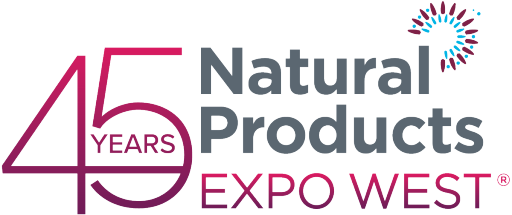Dr. Sandra Carter, M.A., MPH, Ph.D. is a pioneer in preventative medicine, sports performance, and integrative health — and a visionary entrepreneur who transformed the functional mushroom industry. After decades in public health and disease prevention, Dr. Carter founded M2 Ingredients at the age of 55, bringing scientific rigor and mission-driven innovation to a field on the cusp of mainstream awareness. As Founder and Chief Visionary Officer of the largest functional mushroom supplier in the Western Hemisphere, Dr. Carter built M2 Ingredients with a clear conviction: while others in the industry debated marketing semantics, she focused firmly on science, research, and measurable impact. She anticipated the noise that would inevitably follow the mushroom boom — and knew that real data and clinical research would be the most powerful differentiator. Under her leadership, M2 has invested heavily in scientific validation, assembling the largest team of scientists in the industry and leading research on mushroom-derived compounds, gut health, immune support, and cognitive function. This unwavering commitment to science has positioned M2 as the go-to partner for brands seeking integrity, innovation, and efficacy. In parallel, Dr. Carter also built a national consumer brand — now sold in Whole Foods, Sam’s Club, Walmart, and Target — helping bring the benefits of functional mushrooms to millions. Widely recognized as a category architect, she continues to lead with clarity, compassion, and a steadfast belief in the power of fungi, food, and evidence-based wellness.
What’s a lesson you’ve learned from a completely different industry that has helped you in your work?
Before I ever touched a mushroom, I spent decades in preventative medicine. My work revolved around helping patients make changes that would truly improve their health— shifting diets, adding supplements, and embracing exercise. What I learned again and again is that knowledge alone does not change outcomes. Compliance does.
Even when patients knew exactly what they “should” be doing, very few could stick to it. The ones who succeeded had support, daily routines, and products that fit seamlessly into their lives. That experience became the single most important lesson I carried into the mushroom industry.
Mushrooms are extraordinary. Research continues to show their potential for immunity, cognition, energy, mood, and more. But they are not a quick fix. Most require consistent, daily use for weeks before people feel the full effect. That means if I wanted to build something meaningful in this category, I had to design products that consumers would actually start—and keep—using.
That is why I have always emphasized integrating mushrooms into formats people already love and consume every day: coffee, protein and hydration powders, capsules and gummies. Coffee gives you the immediate lift; the mushrooms provide the steady long-term benefits. It is a compliance strategy at its core, rooted in my years of medical practice. People rarely change behavior for novelty alone, but they will stick with something if it fits into their lives and offers both short- and long-term benefits.
Can you share an example of a bold risk you took in your career that paid off (or taught you a valuable lesson)?
When I founded M2 Ingredients at the age of 55, I had never grown a mushroom in my life. To many, it seemed laughable. Friends and colleagues told me I was crazy—that functional mushrooms would never be more than a niche industry. But I believed in the science, and I believed in the impact.
I decided to take a bold risk. I put my savings on the line and partnered with renowned mycologist Steve Farrar, whose knowledge of fungi was unparalleled. Together, we built not just one company, but three: M2 Ingredients as the cultivation and ingredient leader, Om as the consumer brand, and Mushroom Matrix as a pioneer in animal health.
It was far from easy. We were early—too early, some said. But sometimes leadership requires walking into spaces where others cannot yet see the opportunity. We were determined to prove that mushrooms could be grown at scale in the U.S., that they could be formulated into products people wanted, and that they could deliver real health benefits.
Today, functional mushrooms are a multi-billion-dollar global industry. Market reports project the category will surpass USD 60–80 billion within the next decade. Looking back, I see how critical it was to ignore the skeptics and stay focused on the vision. That leap into the unknown was one of the boldest moves of my career, and it shaped not just my own path but an entire vertical that is now thriving worldwide.
What’s a recent consumer shift or behavior change that has surprised you, and how is our industry adapting?
One of the most surprising developments in recent years has been the consumer demographic driving growth. For a long time, functional mushrooms were seen as a “young person’s trend.” They were talked about on wellness podcasts, highlighted in skits and jokes about Millennials, and tied to cultural moments that skewed young.
But the data tells a different story. While 18–35 year-olds are still a core audience, the fastest-growing consumer segment in functional mushrooms is actually adults 55 and older. Baby Boomers are adopting these products at a rate that surpasses any other age group.
To me, this is an extraordinary signal. It tells us that mushrooms are not a fleeting fad. They are going mainstream in the truest sense. Older adults are looking for natural, science-backed solutions to support energy, mood, cognition, and immunity—without turning to pharmaceuticals or highly caffeinated products that can feel harsh. Mushrooms are meeting that need, and the momentum in this demographic shows they are here to stay.
As an industry, this means we need to adapt. We must create formats and messaging that resonate with older consumers while still appealing to younger audiences. We must show that mushrooms are not just trendy powders for smoothies, but serious, versatile ingredients with benefits across the lifespan. This shift excites me, because it validates the vision I had 15 years ago: that mushrooms could transform preventive health in ways both practical and profound.


